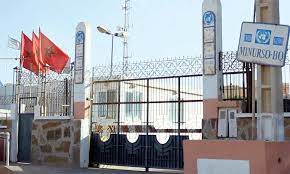The UN Secretary-General’s report welcomes Morocco’s commitment to the ceasefire and its support for efforts to
reach a political settlement in the Sahara.
UN Secretary-General Antonio Guterres has presented his annual report on the situation in the Sahara, covering the period from 1 July 2023 to 30 June 2024. The report, referenced A/79/229, highlights the efforts of the United Nations Mission for the Referendum in Western Sahara (MINURSO) and diplomatic initiatives to promote a political
solution.
The report welcomes Morocco’s commitment to the ceasefire and its support for the UN’s efforts. However, it stresses that the situation remains marked by “low-intensity hostilities” between Morocco and the Polisario Front. MINURSO has investigated several incidents of firing through the berm, which caused one civilian death and three injuries
in October, following rocket attacks on Smara. Air strikes to the east of the berm also caused casualties.
To reduce tensions, MINURSO proposed a cessation of hostilities for the Ramadan. The Royal Moroccan Army reiterated its commitment to the 1991 ceasefire, while stressing its right to respond to Polisario incidents. However, the Polisario rejected this proposal, claiming that it ignored the realities on the ground.
The report notes that MINURSO’s logistical challenges east of the berm eased somewhat after the Polisario offered safe passage, on an exceptional and temporary basis, for supply convoys. This has enabled the mission to maintain a more reliable monitoring presence.
Secretary-General Guterres met with Polisario leader Brahim Ghali in New York in September 2023 to discuss the political process and MINURSO’s presence. The UN Personal Envoy for the Sahara, Staffan de Mistura, has held numerous consultations with the parties to the conflict – Morocco, Polisario, Algeria and Mauritania – as well as with members of the Security Council and other stakeholders, with a view to moving the political process forward.
The report details Mistura’s diplomatic meetings, including with Moroccan Foreign Minister Nasser Bourita, in Rabat in September 2023 and April 2024. Guterres expressed his satisfaction at the support of Mistura’s interlocutors for the United Nations’ efforts to facilitate a political settlement.
MINURSO has also resumed some of its demining and land release activities. However, family reunification visits between Sahrawi refugees and their relatives in Morocco, known as confidence-building measures, have remained on hold. The report also mentions the difficult humanitarian conditions in the Tindouf refugee camps and the need to protect human rights in these camps.
The report notes human rights violations in the camps, including the execution of three unarmed young Sahrawis by Algerian forces in May, and the exploitation of Sahrawi children by the Polisario. Guterres expresses his deep concern at the deteriorating situation and called for a ceasefire to be re-established.
The Secretary-General urges all parties to approach the political process with an open mind and to renounce preconditions. He expresses his conviction that a just, lasting and mutually acceptable political solution is possible, allowing for the self-determination of the people of Western Sahara, in accordance with Security Council
resolutions.
Morocco has proposed autonomy under its sovereignty as a realistic compromise solution, but Algeria and the Polisario have rejected this proposal, insisting on an independence referendum. The report shows that, despite the efforts of the UN, a long-term diplomatic solution remains elusive.
MN/te/fss/as/APA
Polisario hinders Moroccan Sahara peace bids – UN Report


